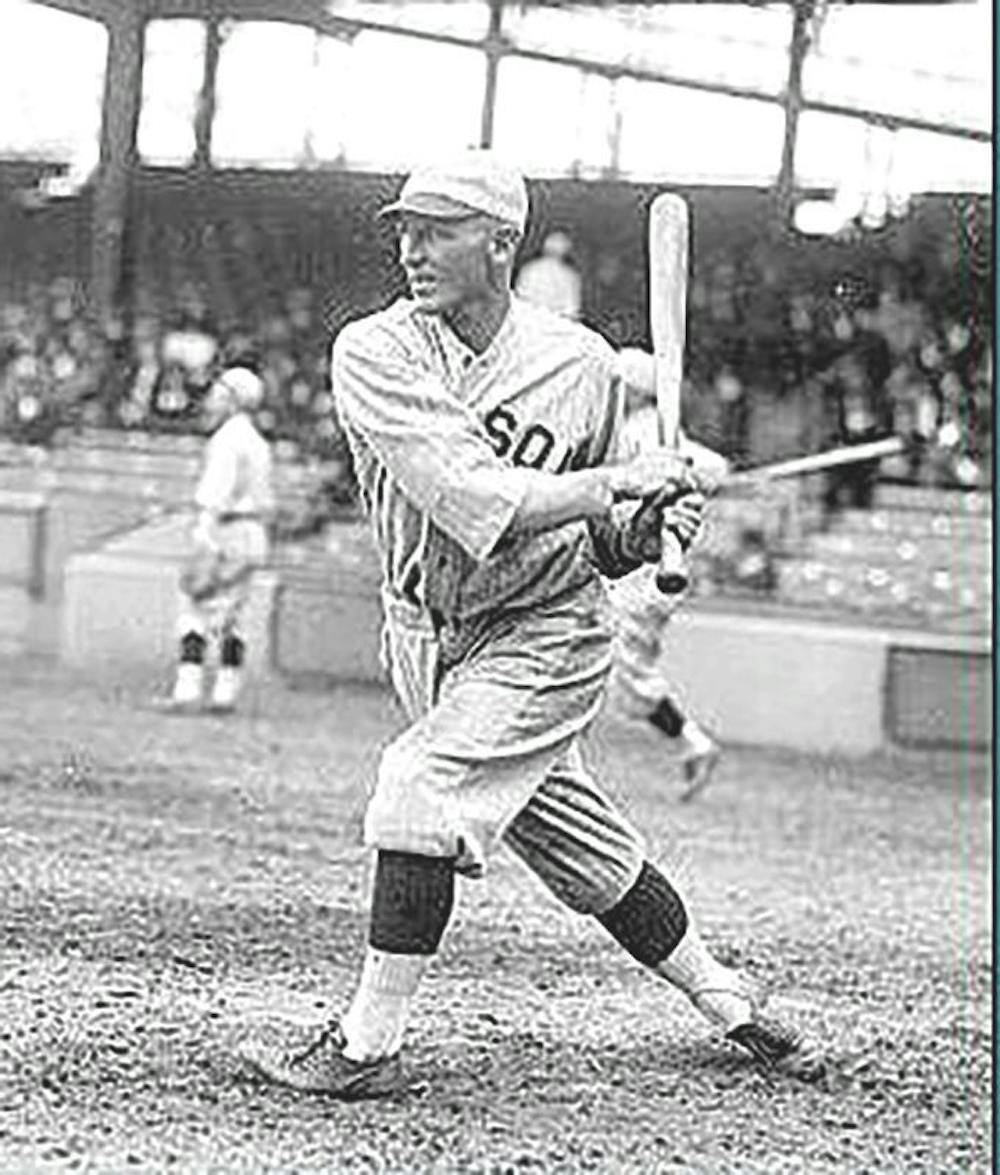It’s been over 100 years since his big-league debut, but Ira Flagstead remains Montague’s most accomplished professional sports success story.
Flagstead’s MLB career spanned just over 13 calendar years, with his first major-league game coming in 1917 for the Detroit Tigers and his final appearance coming in 1930 for the Pittsburgh Pirates. The bulk of Flagstead’s career came with the Tigers, with whom he played six seasons, and the Boston Red Sox, where he spent the next seven.
According to an Oakland Tribune article dated Nov. 11, 1928, Flagstead played catcher for a local team - the Muskegon Independents - as a teen. Born in Montague, Flagstead soon headed west and worked at a lumber mill in Washington while playing semipro ball, still as a catcher, for the Olympia Senators. It wasn’t until he began playing for the Tacoma Tigers of the Northwest League that he took to the outfield. It was there that Flagstead began attracting attention for his batting prowess; an El Paso Herald article from June 1917 credited him with a .398 average to that point in the season after having spent the first month of the campaign on the bench, calling him “the batting sensation of the year.” (The same article gave then-umpire Jack Schilling credit for recommending Flagstead to a scout and getting him signed in Tacoma.)
Exactly two weeks after that article ran, Flagstead’s contract was sold to the Detroit Tigers; the price was unknown but was reportedly “a substantial figure,” said a Tacoma Times article the next day. His batting average at the time was still well in excess of .350. He soon made his major-league debut, but the Tigers sent him to the minor-league Chattanooga Lookouts for development after four games. Flagstead proved to need little seasoning, though, and easily won the batting title for the Lookouts the following season, hitting .381 despite an injury-shortened campaign.
Seeing his success, Detroit brought him back to the big leagues the next year, and he enjoyed a great rookie season, taking advantage of an injury to teammate Chick Shorten to grab the everyday job in right field. He ranked in the top six in the American League in batting average, on-base percentage and slugging percentage, posting an .897 OPS (on-base plus slugging). Had there been Rookie of the Year awards in those days, Flagstead would’ve been a shoo-in.
So successful was Flagstead his first full season that no less an authority than teammate Ty Cobb, to this day the major league record-holder in career batting average (.366), told the Washington Times, “Ira Flagstead is destined to be one of the greatest hitters in the business.”
“’Hook’ (Flagstead’s nickname) is a good hitter now, and is bound to improve with each day of experience gained in the American League,” Cobb added of Flagstead.
Flagstead never did quite return to those statistical heights in Detroit, losing his everyday job over the course of the next couple of years, though he had a solid year in part-time duty in 1922, hitting .308. The next year, the Tigers traded him to the Red Sox, where he locked down an everyday job in the outfield. Flagstead put up solid numbers at the plate during seven seasons in Boston and became known as an elite fielder, moving to center field. Yankees legend Babe Ruth, admittedly no stranger to embellishment, told the Brooklyn Daily Eagle he felt Flagstead was robbing him of 10 home runs per season.
Flagstead tied a major league record that still stands today in one April 1925 game against the Philadelphia Athletics by being involved in three double plays as an outfielder. Twice he threw out runners at the plate on attempted sacrifice flies, and later he reeled in a base hit and threw to third, where his teammates got two runners out on the bases.
Due in large part to his terrific fielding, Flagstead picked up a smattering of MVP votes each year from 1924-28, finishing as high as a tie for seventh in 1925. Flagstead was popular enough in Boston that in July 1928, the Red Sox held an Ira Flagstead Day for a doubleheader against Cleveland; the Brooklyn Daily Eagle reported he received $1,000 in gold, among other gifts, from then-Massachusetts lieutenant governor Frank Allen for the occasion.
Flagstead’s MLB career faded from there; the Red Sox released him in 1929. From there, he played for the Washington Senators and the Pirates, then two minor-league clubs back in his home Pacific Northwest, before stepping away from pro baseball in 1931, at age 37. He became ill in 1939 and passed away in 1940, leaving behind wife Reita and son Ira Jr. Flagstead has been posthumously inducted into various Halls of Fame in honor of his successful career, including the Muskegon Sports Hall of Fame in 1991, the Washington Sports Hall of Fame in 2003, and the Boston Red Sox Hall of Fame in 2016.














